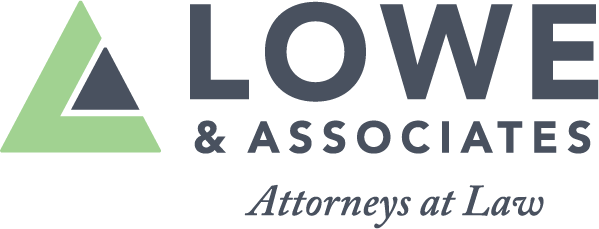FACEBOOK’S “TAGGING SYSTEM” TESTS ILLINOIS’ BIOMETRIC PRIVACY STATUTE
PPLAdmin
In May of 2018, the Ninth Circuit agreed to review Facebook’s challenge to an Illinois district court that certified a class of Facebook users that asserted claims based upon the social media giant’s use of stored facial recognition algorithms. These algorithms allegedly allowed Facebook to “tag” users- as in being able to automatically add Facebook user names to pictures based on facial recognition- and plaintiffs asserted that this practice ran afoul Illinois’ Biometric Information Privacy Act (“BIPA”). On December 17, 2018, the user group argued to the Ninth Circuit that the class certification should be upheld, and that requiring them to prove actual damages rather than allowing them to rely solely on statutory violations would “gut” the robust privacy statute.
Facebook argued in its opening brief that the class should not have been certified because the plaintiffs had failed to show that the company’s alleged conduct caused them any actual harm and that they therefore could not be considered “aggrieved” individuals allowed to sue under the state privacy law. Facebook also contended that common issues (required for class certification) don’t “predominate” because each of the millions of class members would have to make a fact-intensive showing that the alleged statutory violation occurred in Illinois and that the consumer was actually “aggrieved,” or injured.
In “amicus” briefs filed on December 17, 2018, by the Electronic Frontier Foundation, the American Civil Liberties Union, the Center for Democracy and Technology, and the Illinois PIRG Education Fund, argued that adopting Facebook’s reading of BIPA “would effectively gut the statute’s primary purpose and leave people without meaningful recourse in a world of rapidly advancing technology and proliferating uses of biometric information.”
The Electronic Privacy Information Center (“EPIC”) added to the plaintiffs’ arguments by asserting that Facebook’s purported violation of the privacy law — which law requires companies to inform consumers in writing about the specific purpose and length of time for which their data will be collected, stored and used and to obtain a written release from those individuals permitting the collection — was sufficient for the plaintiffs to sue. “While ‘injury’ and ‘harm’ may be synonyms in everyday speech, the terms represent distinct concepts in law…Defendants in privacy cases have long conflated the terms in an attempt to confuse and persuade courts that injury, for purposes of Article III standing, also requires a showing of consequential harm.”
However, the Supreme Court stated in their landmark Spokeo decision- which established that the violation of a concrete and particularized legal right established an actionable injury- “there are many statutory and common law rights that require only a showing of a legal violation to establish standing,” with BIPA being one of them, according to EPIC.
“Article III simply requires plaintiffs to demonstrate that a defendant has invaded a concrete interest protected by the law—nothing more…When a company violates individuals’ BIPA rights by failing to obtain consent prior to collecting their biometric data, the company invades their legally protected interests, causing injury-in-fact — legal injury,” EPIC stated.
This face-scan dispute, which was originally filed in Illinois before being transferred to California, is being closely watched by many in the privacy class action arena as one of the first major tests of the scope and reach of the Illinois’ biometric privacy statute. Besides the privacy groups, the U.S. Chamber of Commerce and the Internet Association have also filed amicus briefs, in support of Facebook’s argument that the plaintiffs lack standing and that the class certification ruling should be reversed.
The amici who filed briefs are represented by Nathan Freed Wessler of the ACLU Foundation, Rebecca K. Glenberg of Roger Baldwin Foundation of ACLU, Jacob A. Snow of ACLU Foundation of Northern California, Jennifer Lynch and Adam Schwartz of EFF, Joseph Jerome of CDT, Michael C. Landis of Illinois PIRG Education Fund and Marc Rotenberg, Alan Butler and John Davisson of EPIC.
The Facebook users are represented by Alexander G. Tievsky, Jay Edelson, Benjamin H. Richman, Rafey S. Balabanian and Lily Hough of Edelson PC, Paul J. Geller, Shawn A. Williams, John H. George, Stuart A. Davidson and Christopher C. Gold of Robbins Geller Rudman & Dowd LLP, and Lawrence Sucharow, Corban S. Rhodes, Michael P. Canty and Ross M. Kamhi of Labaton Sucharow LLP.
Facebook is represented by Lauren R. Goldman, Andrew J. Pincus and Michael Rayfield of Mayer Brown LLP.
The case is Patel et al. v. Facebook Inc., case number 18-80053, in the U.S. Court of Appeal for the Ninth Circuit.
* Lowe & Associates (“The Firm”) is a boutique entertainment and business litigation firm located in Beverly Hills, California. The Firm has extensive experience handling cases involving entertainment law, having provided top quality legal services to its clients since 1991. The Firm is recognized in multiple publications for its many achievements and high ethical standards, including Martindale-Hubbell and Super Lawyers.
Find us at our website at www.LoweLaw.com
